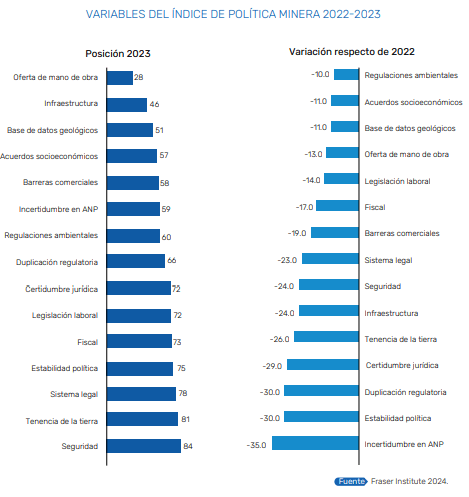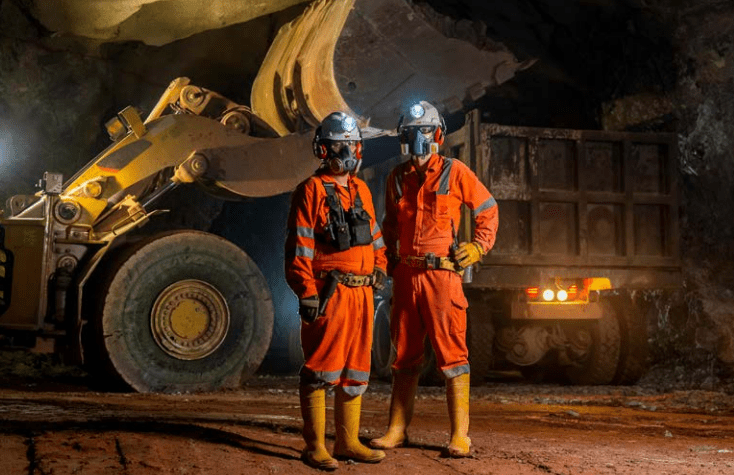Mexico fell to 74th place in the Fraser Institute‘s mining indicator in 2023, down from 37th place in 2022.
The Fraser Institute is a Canadian non-profit think tank that focuses on public policy research and analysis, including the mining industry.
In Latin America, 11 jurisdictions were evaluated and Mexico ranked ninth in the region.
In particular, the Fraser Institute’s Mining Investment Attractiveness Index is an annual ranking that evaluates the mining policies of different jurisdictions worldwide.
These results are based on the response of 293 companies from 86 jurisdictions (countries, states or provinces) surveyed in 2023.
Mining Indicator
This index considers factors such as the following:
- Regulatory stability.
- Safety.
- Infrastructure.
- Labor legislation.
- Policy clarity.
- Bureaucracy.
- Perception of political risk.
- Availability of mineral resources.
Investment
Mexico’s decline in the Investment Attractiveness Index was due to a drop in the Geological Potential Index score, reflecting significant decreases in exploration budgets, as well as the Mining Policy Index, reflecting the uncertainty caused by recent changes to mining legislation and the absence of a public policy to boost the mining sector in Mexico.
In the first case, the score decreased from 73.5 to 37.5 points, between 2022 and 2023, while in the second case it dropped from 40.1 to 35.0 points.
According to the Mexican Constitution and applicable Mexican laws, mineral extraction activities may only be carried out by the government or, alternatively, by Mexican natural or juridical persons, if granted a government concession.
Foreign investment, including controlling interests, in Mexican mining companies is permitted under Mexican law, except for any extraction of radioactive minerals.
Under the Mining Law, private companies are granted concessions to explore for up to six years and to mine for up to fifty years.
These are the results for Mexico:


